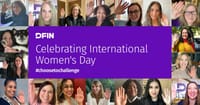[ibimage==44189==Large==none==self==ibimage_align-center]
Even on days when Chicago Public Library branches are closed it’s not uncommon to see cars sitting in the parking lot. The people parked outside aren’t there for the library's books; rather they’ve shown up for something else. The thing that’s radiating from within the building: WiFi.
It shows how much the Chicago Public Library system has changed since its birth that WiFi has become one of its essential services. When founded 132 years ago with a 3,000 book collection inside an old iron water tank (one of the few structures to survive the Great Chicago Fire) the Chicago Public Library’s ambition was to expand the public’s access to information. And for decades it’s built on that goal by building more branches and buying more books: a circulation of over 10 million in 2014. But library system has come to a point where the book lending formula isn’t as effective as it once was. The public needs access to a different type of information, information found on the Internet.
So, it is with that new reality in mind that the Chicago Public Library system, in partnership with the Chicago Public Library Foundation, Knight Foundation, and Google has announced a new “Internet to Go” pilot program.
Starting in February, the Brighton Park, Greater Grand Crossing, and Douglas public library branches will begin lending out WiFi hotspots, laptops and tablets to the public. A total of 100 WiFi hotspots will be lent for periods of three-weeks at a time. Combined with “digital skills coaching,” the Chicago Public Library wants to see if lending digital devices and wireless Internet will improve information access in the city’s poorest neighborhoods.
“The importance of Internet access and digital literacy skills in today’s economy is clear,” said Chicago Public Library Commissioner Bannon in a statement. “We are committed to working with public and private entities to bridge the digital divide throughout the city.”
The Chicago Public Library cites a study that says in-home broadband use for many of the city's low-income neighborhoods is around 50 percent. It also cites early data from another Chicago computer access program showing residents receiving technology training are 13 percent more likely to find a job or raise their income. Lack of high-quality Internet may hurt many low-income resident’s ability to find jobs, update their skills and learn about programs that might help them get out of poverty.
"Internet access and digital skills are necessary for success in the 21st century workforce,” said Mayor Emanuel.
The Internet-to Go program is funded in part by the Knight News Foundation, which gave $400,000 and Google, which gave $175,000. Google has also been expanding highspeed internet access in recent years via Google Fiber– it turns out, people without Internet make great prospective customers.
If the Internet to Go pilot program is successful, the Chicago Public Library will expand the it to three more library branches.
Have a tip for us or know of a company that deserves coverage? Email us via [email protected]





